TURMERIC for Arthritis Help?
Do you, or anyone you know, struggle with arthritis? Turns out, it’s pretty common. The latest research says that over 54 million people in the United States have it, and more than 1 in 4 adults report severe joint pain.

Since there’s the chance these numbers may include some of our Cook’n readers, and knowing that you are also interested in more natural approaches to health issues, I thought sharing TURMERIC FOR HEALTH’S (TFH) information might be helpful.
TFH is one of the most popular and best researched sites on the topic of turmeric, and they promote turmeric use for helping arthritis (as supported by years of scientific research). Here are some common questions, with answers, related to turmeric’s therapeutic efficacy in arthritis treatment:

Will turmeric ease arthritic pain? Yes, as it’s a natural painkiller—it has anti-inflammatory and anti-arthritic properties that help relieve arthritic pain.
Does turmeric only reduce symptoms or does it heal arthritis? Turmeric reduces arthritis symptoms such as pain and inflammation. It also acts at genetic levels, prevents bone loss and works as a chemo-preventive agent. Turmeric does help reduce symptoms as well as halt arthritis progression.
Can turmeric reduce bone loss in arthritis? As mentioned above, it does prevent bone turnover and cartilage loss in conditions like osteoarthritis.
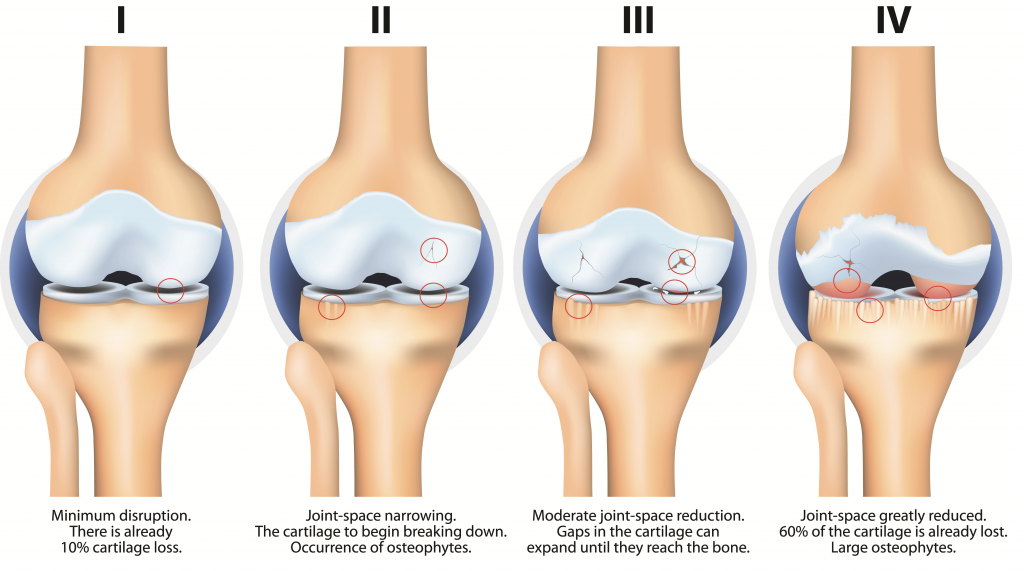
Should I take whole or ground turmeric for arthritis? TFH says either is good. They both contain therapeutic compounds and essential oils that are anti-arthritic.
Is it safe to take turmeric with other arthritic supplements? Yes, however, it’s best to limit it to low doses (1-2 teaspoons per day) to avoid gastric discomfort.
Are there herbs I can take with turmeric to enhance turmeric’s benefits? Yes, and there are several, but some of the best herbs to combine with turmeric include ginger, Boswellia serrata, Morus alba, and bromelain extract. And other helpful dietary supplements include fish oil, glucosamine, chondroitin sulphate, and resveratrol. It’s always smart to visit with a certified herbalist prior to taking herbs, no matter what your condition.
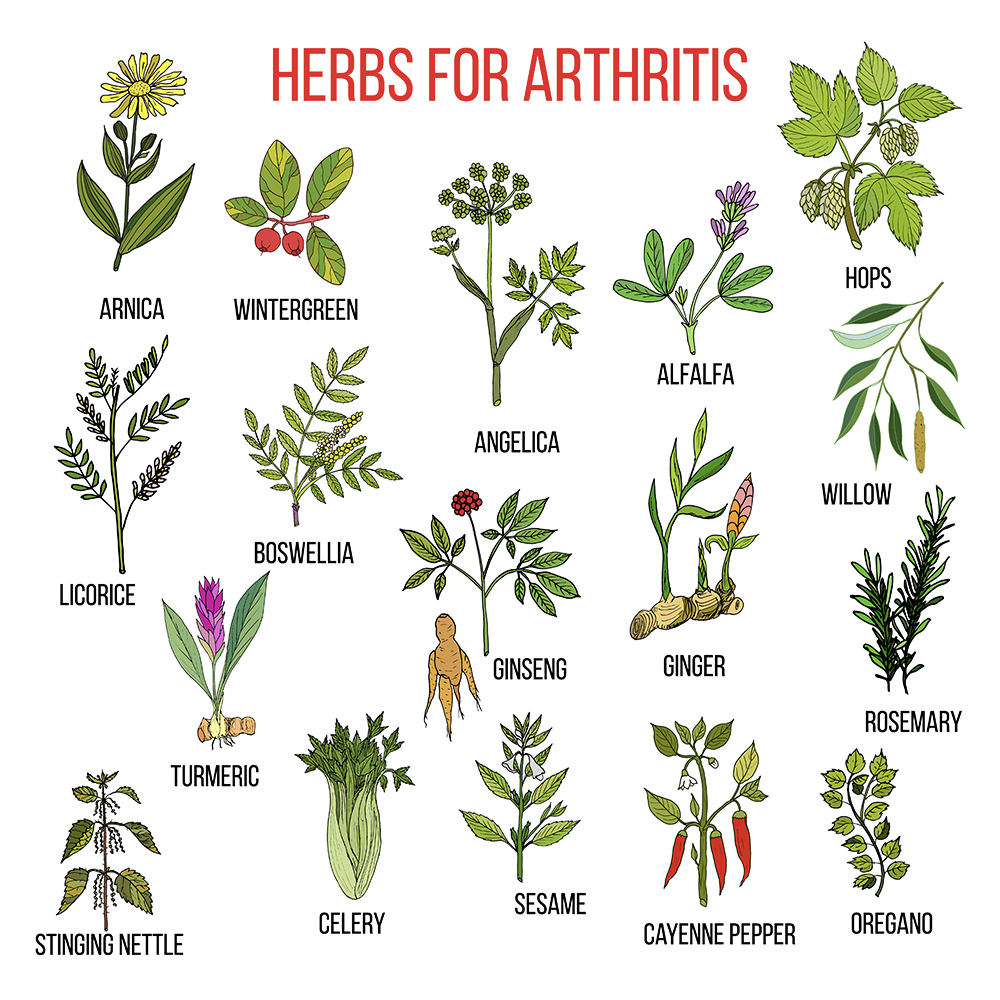
Can I take turmeric with anti-arthritic medications? Yes, this is also safe. In fact, turmeric has a synergistic action with certain medications prescribed in arthritis like indomethacin, diclofenac sodium, phenylbutazone, ibuprofen, prednisone, and methotrexate. It’s best, however, to maintain a 3-4 hour gap between taking your medications and taking turmeric.
Can I discontinue anti-arthritic medications by taking turmeric? Turmeric is not meant to replace professional medical advice and treatment. Many people do report discontinuation of anti-arthritic medications after taking turmeric but TFH recommends seeking your doctor’s advice on this. Certain medications (like steroids) require tapering, possible with appropriate medical advice.

How long does it take for turmeric to benefit arthritis? This depends on the individual, severity of the disease, dosage, as well as the form of turmeric you are taking. Some individuals experience relief after 1-2 days of taking turmeric while some observe the difference in 2 weeks. At a dose of 1 teaspoon 2-3 times a day, pain reduction is common within 10 days.
Can turmeric be used to treat arthritis in pets? Yes, research shows pets commonly benefit from having turmeric mixed into their food.
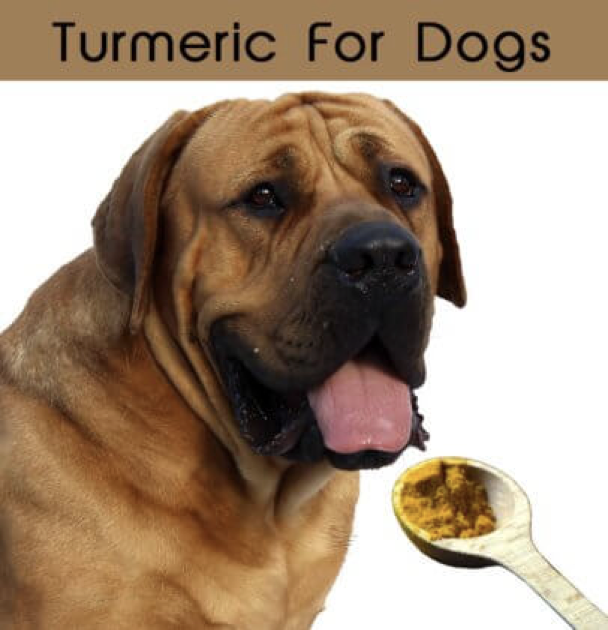
Are there any side effects or precautions to note about turmeric? It’s generally safe when taken in moderate doses. However, there are some precautions:
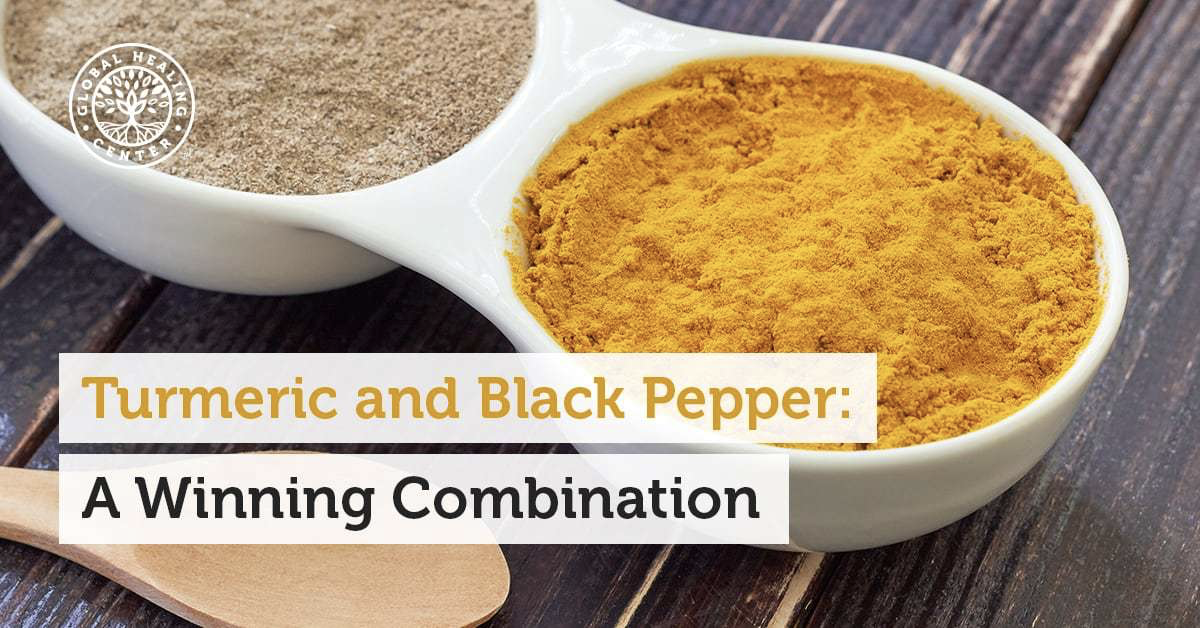
If none of the above-mentioned conditions are issues for you, then you can take as much as 1 teaspoon of turmeric powder daily. It doesn’t dissolve well in water, though, so be sure to take it with a smidge of black pepper for better absorption.
Lastly, if taking turmeric for arthritis is something you want to consider, then you might be interested in knowing which brands shined in TFH’s rigorous testing:
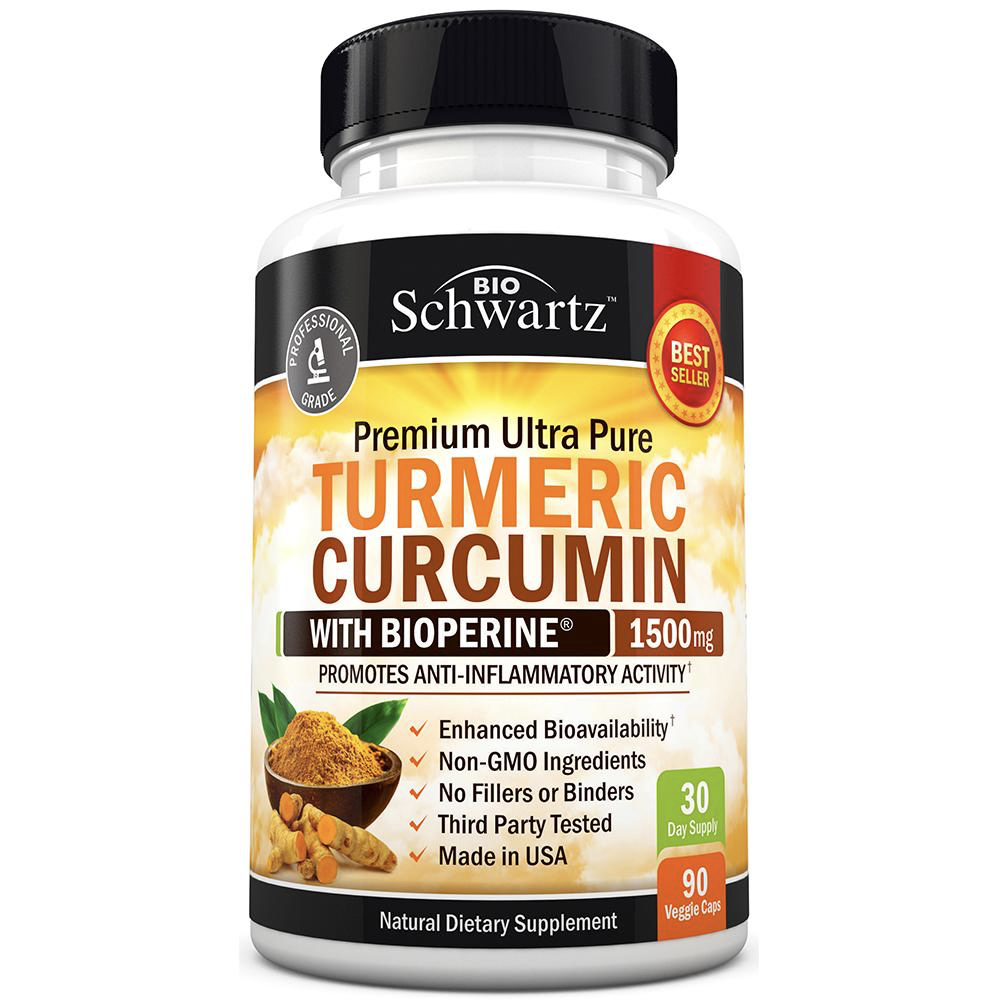
Sports Research Turmeric Curcumin C3 Complex
Viva Naturals Non GMO Turmeric Curcumin C3
Schwartz Bioresearch Turmeric Curcumin Bioperine
Doctor Danielle Turmeric Curcumin with Bioperine
Source Naturals Turmeric with Meriva
NOW CurcuBrain
Natural Factors – CurcuminRich Double Strength Theracurmin
Terry Naturally CuraMed

Since there’s the chance these numbers may include some of our Cook’n readers, and knowing that you are also interested in more natural approaches to health issues, I thought sharing TURMERIC FOR HEALTH’S (TFH) information might be helpful.
TFH is one of the most popular and best researched sites on the topic of turmeric, and they promote turmeric use for helping arthritis (as supported by years of scientific research). Here are some common questions, with answers, related to turmeric’s therapeutic efficacy in arthritis treatment:

Will turmeric ease arthritic pain? Yes, as it’s a natural painkiller—it has anti-inflammatory and anti-arthritic properties that help relieve arthritic pain.
Does turmeric only reduce symptoms or does it heal arthritis? Turmeric reduces arthritis symptoms such as pain and inflammation. It also acts at genetic levels, prevents bone loss and works as a chemo-preventive agent. Turmeric does help reduce symptoms as well as halt arthritis progression.
Can turmeric reduce bone loss in arthritis? As mentioned above, it does prevent bone turnover and cartilage loss in conditions like osteoarthritis.

Should I take whole or ground turmeric for arthritis? TFH says either is good. They both contain therapeutic compounds and essential oils that are anti-arthritic.
Is it safe to take turmeric with other arthritic supplements? Yes, however, it’s best to limit it to low doses (1-2 teaspoons per day) to avoid gastric discomfort.
Are there herbs I can take with turmeric to enhance turmeric’s benefits? Yes, and there are several, but some of the best herbs to combine with turmeric include ginger, Boswellia serrata, Morus alba, and bromelain extract. And other helpful dietary supplements include fish oil, glucosamine, chondroitin sulphate, and resveratrol. It’s always smart to visit with a certified herbalist prior to taking herbs, no matter what your condition.

Can I take turmeric with anti-arthritic medications? Yes, this is also safe. In fact, turmeric has a synergistic action with certain medications prescribed in arthritis like indomethacin, diclofenac sodium, phenylbutazone, ibuprofen, prednisone, and methotrexate. It’s best, however, to maintain a 3-4 hour gap between taking your medications and taking turmeric.
Can I discontinue anti-arthritic medications by taking turmeric? Turmeric is not meant to replace professional medical advice and treatment. Many people do report discontinuation of anti-arthritic medications after taking turmeric but TFH recommends seeking your doctor’s advice on this. Certain medications (like steroids) require tapering, possible with appropriate medical advice.

How long does it take for turmeric to benefit arthritis? This depends on the individual, severity of the disease, dosage, as well as the form of turmeric you are taking. Some individuals experience relief after 1-2 days of taking turmeric while some observe the difference in 2 weeks. At a dose of 1 teaspoon 2-3 times a day, pain reduction is common within 10 days.
Can turmeric be used to treat arthritis in pets? Yes, research shows pets commonly benefit from having turmeric mixed into their food.

Are there any side effects or precautions to note about turmeric? It’s generally safe when taken in moderate doses. However, there are some precautions:
- Some people can experience mild side effects such as stomach upset, nausea, dizziness, or diarrhea. These side effects are more common at higher doses.
- If pregnant or breast-feeding, doctors say there isn’t enough reliable information to know if turmeric is safe to use in medicinal amounts during pregnancy or breast-feeding. Stay on the safe side and avoid use.
- If you have gallbladder issues, turmeric may worsen the problem, so avoid it if you have gallstones or a bile duct obstruction.
- Turmeric might slow blood clotting, due to its ingredient, curcumin. This could increase the risk of bruising and bleeding in those with bleeding disorders.
- Those with diabetes should also use turmeric with caution as its curcumin could make blood sugar too low.
- Turmeric can cause stomach upset in some people. It might make stomach problems such as GERD worse. Do not take turmeric if it worsens symptoms of GERD.
- Turmeric’s curcumin can act like the hormone estrogen, therefore, in theory, it might worsen hormone-sensitive conditions. But research shows turmeric actually reduces the effects of estrogen in some hormone-sensitive cancer cells. Therefore, turmeric might have beneficial effects on hormone-sensitive conditions. Until more is known, use cautiously if you have a condition that might be made worse by exposure to hormones.
- Taking high amounts of turmeric might prevent iron absorption. Take it with caution if dealing with iron deficiency.
- There is some concern that turmeric can damage the liver, especially in people who have liver disease. Don't use it if you have liver problems.
- If you have a scheduled surgery, stop taking turmeric at least 2 weeks prior, as it might slow blood clotting.

If none of the above-mentioned conditions are issues for you, then you can take as much as 1 teaspoon of turmeric powder daily. It doesn’t dissolve well in water, though, so be sure to take it with a smidge of black pepper for better absorption.
Lastly, if taking turmeric for arthritis is something you want to consider, then you might be interested in knowing which brands shined in TFH’s rigorous testing:

Sports Research Turmeric Curcumin C3 Complex
Viva Naturals Non GMO Turmeric Curcumin C3
Schwartz Bioresearch Turmeric Curcumin Bioperine
Doctor Danielle Turmeric Curcumin with Bioperine
Source Naturals Turmeric with Meriva
NOW CurcuBrain
Natural Factors – CurcuminRich Double Strength Theracurmin
Terry Naturally CuraMed
Sources:
- www.comprehensiveorthopedics.com
- www.turmericforhealth.com
- www.teachmesurgery.com
- www.alldaychemist.com
- www.soleilpt.com
- www.holistapet.com
- www.globalhealingcom
- www.bioschwartz.com
 Alice Osborne
Alice Osborne
Weekly Newsletter Contributor since 2006
Email the author! alice@dvo.com
